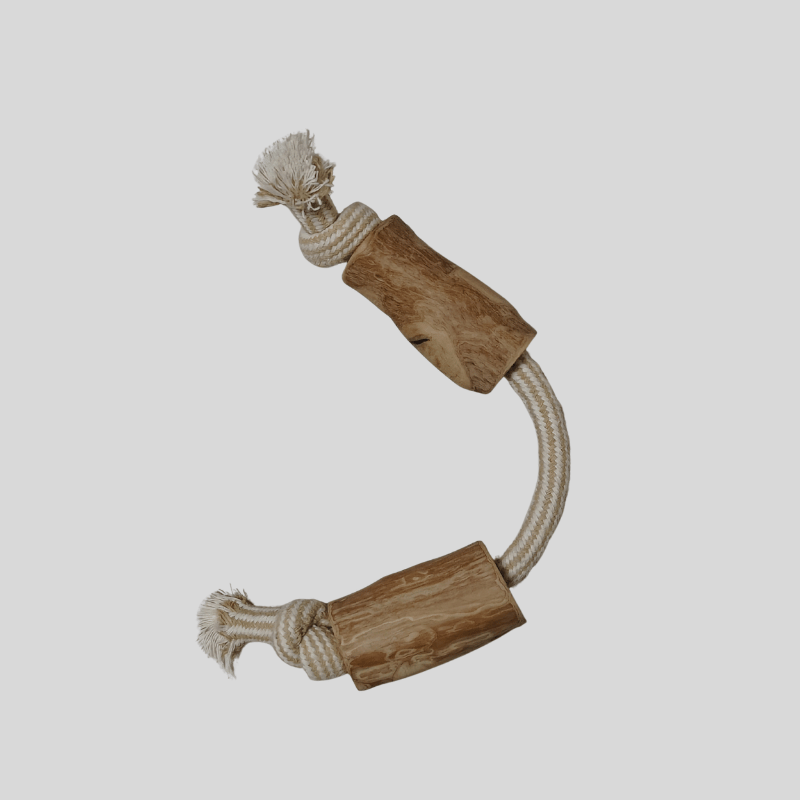Have you ever felt completely overwhelmed walking into the chew section of a pet store?
Your neighbor is raving about chews made from coffee wood—but what do veterinarians actually recommend to keep dog jaws safely busy?
Let’s take a closer look at what vets recommend for their four-legged clients
Why Vets Are Seriously Concerned About What Your Dog Chews
It’s not just about saving your favorite shoes 👟. The wrong chew can lead to:
- Broken teeth – often caused by bones, antlers, or ultra-hard nylon chews
- Choking or blockages – especially from rawhide, plastic, or toys that break apart
- Internal injuries – from splintered wood or cooked bones
- Digestive distress or toxicity – from added chemicals, preservatives, or dyes
Chew Guidelines Vets Wish Every Pet Parent Knew
✅ “Supervise or Don’t Offer” – Never leave your dog alone with a chew.
✅ Match the chew to the chewer – A Papillon and a Pitbull have very different jaws.
✅ If it’s too hard to dent with your fingernail, it’s too hard for their teeth.
✅ When in doubt, throw it out. If a chew becomes sharp or small, it’s time to replace it.
✅ Natural doesn’t always mean safe. Even organic chews can be risky.
Vet-Recommended Chews – and Where Coffee Wood Fits In
| Chew Type | Why Vets Like It | How Coffee Wood Compares |
|---|---|---|
| High-quality rubber (e.g., KONG, West Paw, GoughNuts) | Flexible, dishwasher-safe, ultra-durable | Coffee wood offers a natural alternative—tough yet satisfying to chew |
| VOHC-approved dental chews | Texture designed to reduce plaque and tartar | Coffee wood’s fibrous texture helps scrape teeth, though not yet certified |
| Bully sticks | Digestible, protein-rich, safer if thick and natural | Coffee wood chews last longer, have less odor/calories, and fewer choking risks |
| Himalayan yak cheese | Low-odor, long-lasting | Coffee wood has similar durability, with even fewer risks (no choking chunks) |
So, What Do Vets Say About Coffee Wood Chews?
Safety First
When sized properly, coffee wood rarely splinters—it frays instead.
Tooth-Friendly Toughness
Tougher than many chews but softer than antlers or bones, helping reduce fracture risk.
Pure & Simple
100% natural, no glue, dyes, or artificial flavors. Great for sensitive dogs (hypoallergenic).
Great for Redirecting Behavior
Ideal for aggressive chewers—helps protect furniture, shoes, and sanity.
Chewing as Calming Therapy
Focused chewing = natural anxiety relief. Many vets now recognize this soothing effect.
Vet-Recommended Tips for Safe Use
- Choose the right size – Always pick a chew larger than your dog’s mouth.
- Supervise – Monitor every 10–15 minutes while they chew.
- Replace when needed – Discard if small enough to swallow or if splintering starts.
- Limit use – 30–60 minutes, once or twice a day. Think of it like a chew workout.
- Choose trusted brands – Look for good reviews and consistent quality. When in doubt, ask your vet.
The Clinic’s Final Word
When it comes to chews, vets prioritize safety, enjoyment, and health.
When used responsibly, coffee wood chews are increasingly recognized for providing long-lasting gnawing pleasure—with less risk to teeth and health than many traditional alternatives.
Combine them with vet-approved dental chews and high-quality rubber toys for a balanced chewing toolkit .
Tip: Bring your dog’s favorite coffee wood chew to your next vet visit. It’s a great way to open a conversation about your pup’s dental health and chewing needs!

